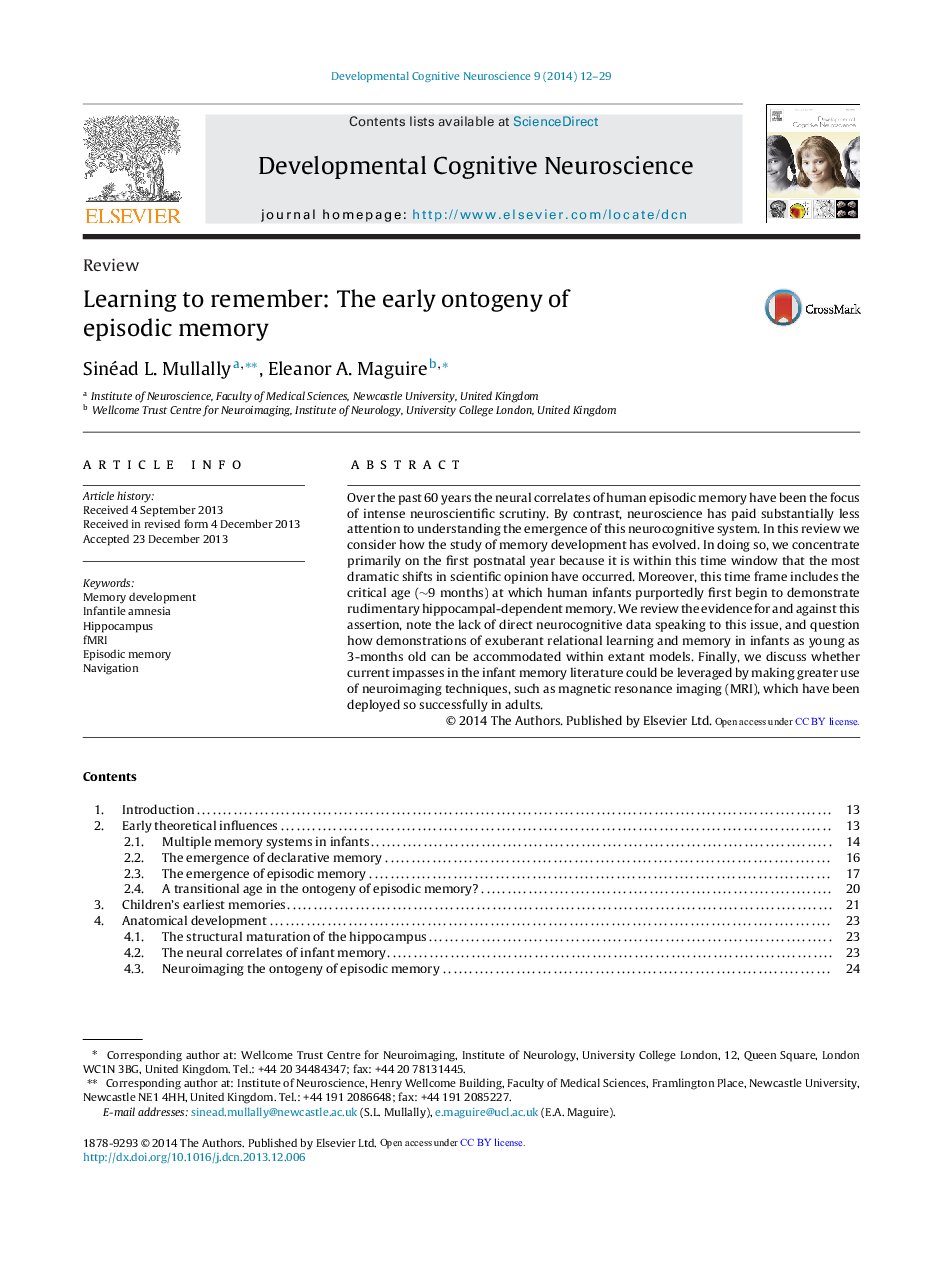| Article ID | Journal | Published Year | Pages | File Type |
|---|---|---|---|---|
| 4316624 | Developmental Cognitive Neuroscience | 2014 | 18 Pages |
•We review literature on the ontogeny of episodic memory in the first postnatal year.•We discuss several extant points of contention.•One of which involves the status of hippocampal function.•We highlight the potential usefulness of MRI in progressing points of debate.
Over the past 60 years the neural correlates of human episodic memory have been the focus of intense neuroscientific scrutiny. By contrast, neuroscience has paid substantially less attention to understanding the emergence of this neurocognitive system. In this review we consider how the study of memory development has evolved. In doing so, we concentrate primarily on the first postnatal year because it is within this time window that the most dramatic shifts in scientific opinion have occurred. Moreover, this time frame includes the critical age (∼9 months) at which human infants purportedly first begin to demonstrate rudimentary hippocampal-dependent memory. We review the evidence for and against this assertion, note the lack of direct neurocognitive data speaking to this issue, and question how demonstrations of exuberant relational learning and memory in infants as young as 3-months old can be accommodated within extant models. Finally, we discuss whether current impasses in the infant memory literature could be leveraged by making greater use of neuroimaging techniques, such as magnetic resonance imaging (MRI), which have been deployed so successfully in adults.
